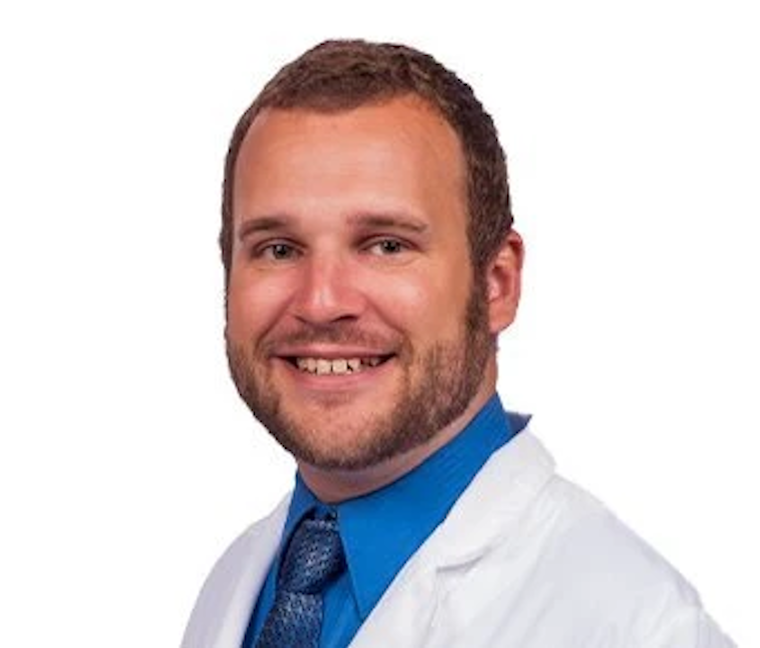Partnerships to Establish and Sustain Rural GME: Q and A with Matthew A. Braniecki, DO of Firelands Regional Medical Center
This interview is part of a series featuring Sponsoring Institutions and programs providing rural graduate medical education (GME) experiences. The series was initiated following the 2022 ACGME Annual Educational Conference presentation on Medically Underserved Areas/Populations: Partnerships to Establish and Sustain Rural GME, available in the ACGME’s digital learning portal, Learn at ACGME. Note: an account (free to create) is required to access most content in Learn at ACGME.
Firelands Regional Medical Center is the only hospital in Erie County, Ohio and has been sponsoring GME for nearly 50 years. Firelands serves as the Sponsoring Institution for a family medicine residency, a transitional year residency, and a hospice and palliative medicine fellowship. Its programs were historically approved by the American Osteopathic Association (AOA), and since transitioning to ACGME accreditation, all have achieved ACGME Osteopathic Recognition. Firelands’ programs have an academic affiliation with Ohio University Heritage College of Osteopathic Medicine. Dr. Matthew Braniecki completed his residency at Firelands in 2015. He started in his current position with Firelands Physician Group immediately after completing his program, and practices in Port Clinton, Ohio. Dr. Braniecki joined the medical education faculty at Firelands in 2019 and eventually became the program director of the family medicine residency. He has also served as the director of Student Medical Education at Firelands since 2021.
ACGME: What drew you to academic medicine and to rural GME specifically?
Dr. Braniecki: I grew up in a small town in Michigan, just north of Detroit. I always saw myself setting up my own practice in a community similar to where I was raised. Firelands checked all the boxes for me when I was searching for a residency program. During my own education and training, while working with medical students, I realized I had a passion for teaching and academic medicine. When given the chance, I jumped at the opportunity to give back to the residency program that did so much for me.
ACGME: Describe the rural GME experiences within your program (e.g., types of sites, structure, curriculum, etc.).
Braniecki: Erie County is designated as a rural area, so the majority of our rotations occur in a rural setting. Residents rotate through Firelands, as well as a number of smaller surrounding hospitals, and also spend time in various ambulatory offices in rural settings.
ACGME: How did your program become involved in establishing rural GME experiences?
Braniecki: Many residencies that were formally approved by the AOA were based in smaller community hospitals and rural settings. Our program was one of these residencies and has always had a rural focus.
ACGME: Describe the internal and external partnerships that have been important in establishing and sustaining these experiences.
Braniecki: We have been intentional in establishing positive relationships with the surrounding hospital systems and health care facilities so that we can maximize the educational learning environments in our region. Our GME staff members work hard to ensure these partnerships are going well. This is one of the advantages to community-based medicine—our medical education staff and core faculty members know many of the physicians in our area on a personal level, making it very easy to maintain lines of communication and thus optimize the learning environment for our residents. It’s important to be easily accessible to the preceptors if and when issues arise; all the physicians here know that they can contact me at any time with concerns. When new physicians come to our area, we’re intentional about reaching out and gauging their interest in medical education. In those cases, I think of it in the same way as building relationships with my patients – it doesn't always happen overnight, but building those relationships over time eventually leads to learning opportunities for our residents.
ACGME: Describe the challenges you have experienced in developing and sustaining rural GME partnerships and experiences; and explain how you have overcome them.
Braniecki: We are challenged by the availability of educational resources to offer our learners. For example, while inpatient pediatric care occurs in our region, it lacks the volume and acuity to meet curricular requirements. We have partnered with other institutions to provide these services for our residents, and sometimes that means having a longer drive to a participating site or performing an away rotation.
ACGME: Describe some of your program’s outcomes since establishing rural GME experiences, including the impact to the surrounding community.
Braniecki: Our Sponsoring Institution has been very supportive of GME, and our residents have been heavily recruited to stay and work in the region. Nearly two-thirds of the members of the Department of Family Medicine at Firelands Regional Medical Center graduated from the program, and there are nearly 50 physicians continuing their education in the region who completed a portion of their education through Firelands. While many rural areas have a primary care shortage, we are amply meeting the community’s needs.
ACGME: What advice do you have for those interested in establishing rural GME experiences?
Braniecki: It’s helpful to identify the unique, positive rural experiences that exist in your region. If there is a facility or practice that is known for offering excellent clinical care in a rural setting, that’s a great prospect to explore for a GME experience [or rotation]. It’s great to expose residents to opportunities to work and learn in such settings. We’ve also frequently sought advice from other programs that have created rural GME experiences to learn from their successes and challenges.
Email muap@acgme.org if you want to get in touch with Dr. Braniecki. Is your Sponsoring Institution/program already providing rural GME experiences and would you like to be featured in a future post in this ACGME Blog series? Email muap@acgme.org to share what you’re doing. Visit the MUA/P web page to learn more about the ACGME’s efforts.

